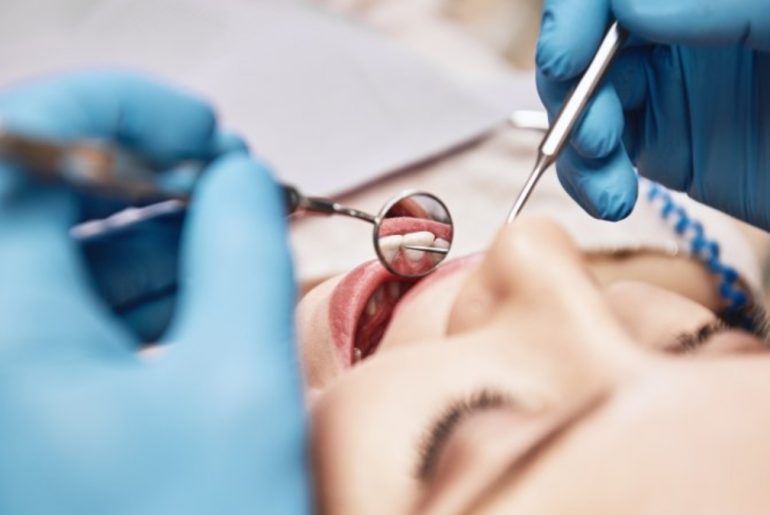Gingivitis is a mild form of gum disease or periodontitis; it causes inflammation of the part of the gum around the base of your teeth. Although Midtown Gingivitis produces mild symptoms, it is essential to seek prompt treatment to avoid periodontitis – an advanced form of gum disease that can cause tooth loss. Most of the time, gingivitis develops due to plaque buildup due to poor oral hygiene. You can prevent gingivitis by practicing good oral health habits such as brushing at least twice each day, flossing, and getting regular dental checkups.
Signs and Symptoms of Gingivitis
If you have gingivitis, your gums may be swollen or puffy and tender to touch. Other signs and symptoms include:
- Bad breath
- Bleeding gums when you floss or brush
- Receding gums
- Soft gums
Mild forms of gingivitis may not cause any discomfort or noticeable symptoms.
What Causes Gingivitis?
Gingivitis is mainly a result of poor oral hygiene; The most common cause of gingivitis is poor oral hygiene that encourages plaque to form on teeth, causing inflammation of the surrounding gum tissues. Here is how plaque can lead to gingivitis:
Plaque is a sticky film that forms when the sugars and starches in food particles interact with bacteria in your mouth. Plaque formation happens quickly, so it requires daily removal to avoid buildup. When you don’t brush your teeth every day, plaque hardens beneath your gum line, forming a hard substance called tartar. Tartar creates a protective shield for bacteria and is more difficult to remove. Unlike plaque which you can eliminate with brushing, tartar requires professional cleaning.
When plaque and tartar stay on your teeth, the more the gum gets irritated. Your gums become swollen and bleed with time, especially when you brush or floss. When left untreated, gingivitis can advance to periodontal disease, resulting in problems such as tooth loss.
Risk Factors for Gingivitis
Although gingivitis mainly occurs due to poor oral hygiene, other factors may make you susceptible to this mild form of gum disease. They include:
- Use of certain drugs. Some medications reduce saliva production in your mouth, increasing the risk of gingivitis. Angina drugs and epilepsy medication can cause abnormal growth of gum tissue, increasing your risk of gingivitis.
- Diseases such as HIV, cancer, and diabetes are associated with a higher risk of gingivitis.
- Hormonal changes during puberty, menstrual cycle, pregnancy, and menopause cause gum sensitivity, increasing the risk of inflammation.
- Smoking. Gingivitis is more likely to develop in smokers than non-smokers.
- Age. Older people are more susceptible to this mild form of gum disease than younger people.
- Family history. You are more likely to have gingivitis if your close relative, such as your parents and siblings that have had the same problem.
Preventing Gingivitis
- The best way to prevent gingivitis is by observing oral hygiene practices; for example, ensure you brush your teeth every morning and before bedtime. Floss at least once every day to clean away loose food particles.
- Visit your dentist usually every six to 12 months for cleaning to avoid the formation of tartar on your teeth. Regular dental visits are also essential to monitor any changes in your dental health
If you have gingivitis, visit your dentist at Charles M. Marks, DDS & Dental Associates, for treatment to improve your oral health.

